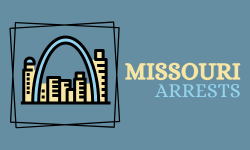Pre-trial Process in Missouri
The pre-trial process in Missouri involves several key steps that set the foundation for a fair and efficient legal proceeding. It begins with the filing of a complaint by the plaintiff, outlining the allegations against the defendant. Following this, both parties engage in the discovery phase, where they exchange relevant information and evidence to prepare their cases.
Furthermore, pre-trial conferences are scheduled to streamline the upcoming trial, discussing potential settlements and establishing timelines. Throughout this process, judges play a crucial role in overseeing the proceedings and ensuring that all parties adhere to the rules of the court. Understanding the pre-trial process in Missouri is essential for all involved in the legal system to navigate the complexities of the law effectively.
Missouri Pre-Trial Process Overview
Legal proceedings in Missouri follow a systematic pre-trial process to ensure fair and efficient trials. Understanding these key steps is crucial for anyone involved in court preparations.
Filing of Complaint by Plaintiff
The pre-trial process in Missouri begins with the filing of a complaint by the plaintiff. This document outlines the legal basis for the lawsuit and the relief sought. It initiates the legal proceedings and notifies the defendant of the allegations brought against them.
Discovery Phase: Exchanging Information and Evidence
During the discovery phase, both parties exchange relevant information and evidence to build their cases. This phase helps in uncovering facts, witnesses, and documents that will be presented during the trial. It is a crucial step in preparing a strong legal strategy.
Pre-Trial Conferences: Streamlining Trials
Pre-trial conferences are scheduled to streamline the upcoming trial. Judges may discuss settlement options, evidence presentation, and other logistical matters to ensure a smooth trial process. These conferences help in narrowing down issues and focusing on key aspects of the case.
Judges’ Role in Overseeing Proceedings
Judges play a crucial role in overseeing pre-trial proceedings. They ensure that both parties adhere to court rules, deadlines, and procedures. Judges may also resolve disputes, issue rulings, and manage the overall timeline of the trial to maintain fairness and efficiency.
Importance of Understanding Missouri’s Pre-Trial Process
Understanding Missouri’s pre-trial process is essential for anyone involved in legal proceedings. It allows parties to navigate the complexities of the law effectively, prepare a strong case, and ensure a fair trial. Knowledge of these key steps can significantly impact the outcome of a legal dispute.
Ensuring Fair and Efficient Legal Proceedings
Ensuring fair and efficient legal proceedings is a priority in Missouri’s pre-trial process. By following the established procedures, both parties can present their cases effectively, seek justice, and resolve disputes in a timely manner. A well-organized pre-trial process sets the foundation for a successful trial.
Navigating Complexities of the Law Effectively
Navigating the complexities of the law effectively requires a thorough understanding of Missouri’s pre-trial process. Parties must adhere to legal requirements, deadlines, and court procedures to avoid delays and complications. By staying informed and prepared, individuals can navigate the legal system with confidence.
Frequently Asked Questions
Our FAQ section aims to provide you with detailed information about the pre-trial process in Missouri. Below are some commonly asked questions with comprehensive explanations to help you navigate through this legal process.
What is the pre-trial process in Missouri?
The pre-trial process in Missouri is a crucial stage in a criminal case where both parties exchange information, negotiate potential plea deals, and prepare for trial. This phase involves various steps such as arraignment, discovery, motions, and potentially settlement conferences.
What happens during an arraignment?
During an arraignment, the defendant is informed of the charges against them, advised of their rights, and asked to enter a plea. This is a formal court proceeding where the defendant can plead guilty, not guilty, or no contest.
What is the purpose of discovery in the pre-trial process?
Discovery is the process where both the prosecution and defense exchange evidence and information related to the case. This includes witness statements, police reports, expert testimony, and any other relevant documents that may be used during trial.
Can motions be filed during the pre-trial process?
Yes, motions can be filed by either party during the pre-trial process. These motions can address various issues such as suppressing evidence, dismissing charges, or requesting a change of venue. The judge will review these motions and make a ruling accordingly.
What role do settlement conferences play in the pre-trial process?
Settlement conferences are voluntary meetings between the prosecution, defense, and sometimes the judge to discuss potential plea agreements or other resolutions to the case. These conferences aim to avoid a lengthy trial process and reach a mutually beneficial outcome for both parties.
What occurs if a case doesn’t settle before trial?
If a case does not reach a settlement during the pre-trial process, it will proceed to trial. This involves presenting evidence, calling witnesses, and making legal arguments in front of a judge and/or jury. The trial process will ultimately determine the guilt or innocence of the defendant.







